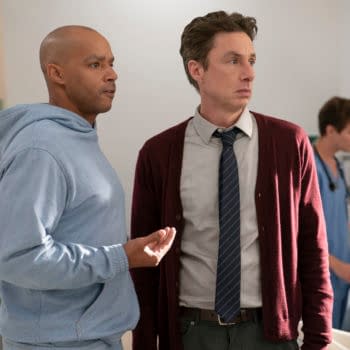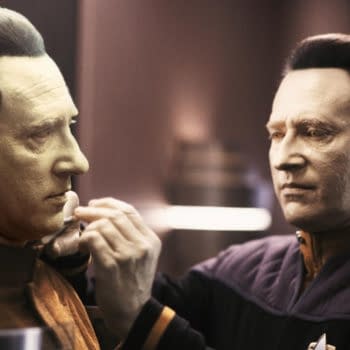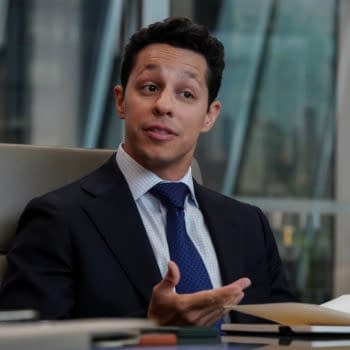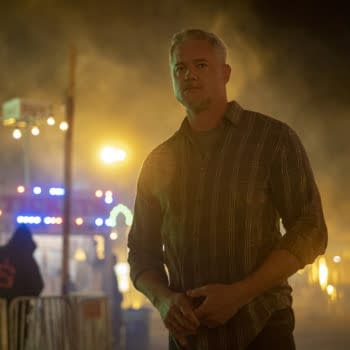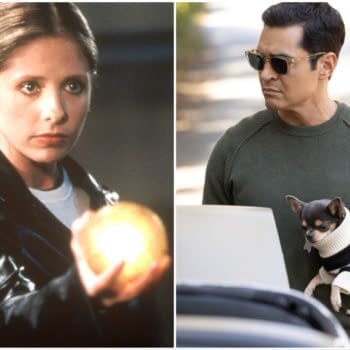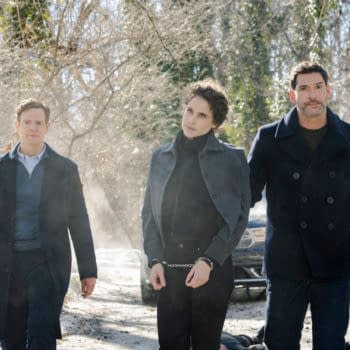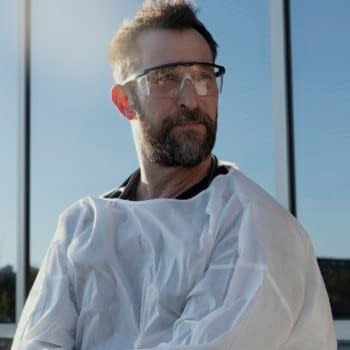Posted in: TV | Tagged: Maigret, pbs
Maigret Stars Wainwright & Okwok on Becoming Franchise Torchbearers
Maigret stars Benjamin Wainwright and Shaniqua Okwok discussed how they approached offering a fresh and modern take on the franchise.
Any time you adapt something as beloved as the procedural crime drama franchise as Maigret, it always comes with its set of challenges. Creator and showrunner Patrick Harbinson decided to take a dramatically different approach to the well-established figure often depicted at the top of the police force and middle aged by casting Benjamin Wainwright as the title character Jules Maigret, as a younger character rising through the ranks of the Paris Police Judiciaire as Chief Inspector in the present day, another major departure from previous adaptations of the works based on Georges Simenon. For the Belgravia: The Next Chapter Star, it's certainly a tall task to step into the shoes of a role previously played by Rupert Davies, Bruno Cremer, Richard Harris, Michael Gambon, and Rowan Atkinson. Wainwright and co-star Shaniqua Okwok, who plays Det. Berthe Janvier, a gender-bent original version of the character and member of La Crim, spoke to Bleeding Cool about the appeal of joining the franchise, whether they felt the weight of measuring up to previous adaptations, and Harbinson's provision of creative autonomy to the characters, allowing them to be their own.
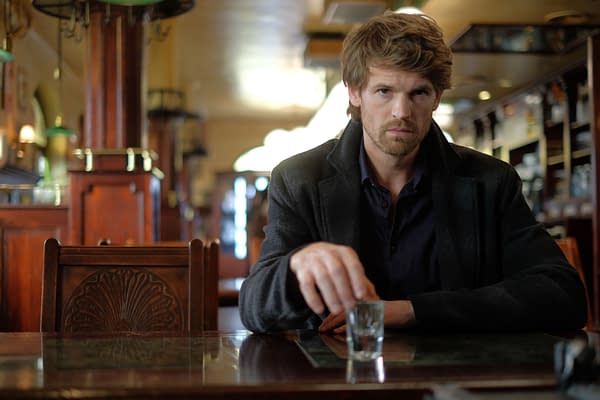
Maigret Stars Benjamin Wainwright and Shaniqua Okwok on Bringing Youthful Energy to Franchise in Modern Take
Bleeding Cool: What intrigued you about Maigret, and what drew you to being able to play into that world? How has the franchise endured globally for as long as it has?
Wainwright: I'll take that one. What I loved about Maigret, having never come across him before, I dove straight into the books. There's such economy in the writing. They're so simply written, the sentences are short, and there's rarely any kind of polysyllabic adjective in them. They're so simple, comprehensible, and they deal with a living, breathing Paris, and somehow, in all that simplicity, there is so much depth to it. William Faulkner always compares [Georges] Simenon to [Anton] Chekov, and it's a valid comparison, especially for an actor who did a lot of that Chekhovian stuff in training.
I thought, "Oh, maybe I can be at home with this guy if there's some through line from Chekov, then that's great," if there is richness to play with that makes my life a lot easier. Patrick managed to bring all that simplicity, economy, and depth into the scripts, and it's thrilling to see how he managed to pull that off and how it endured globally. I think for all those same reasons it's the books are so pithily designed to be read on a train journey, they're only a maximum of around 150-200 pages long. You can really tear through them, and we want stuff that's a manageable size like that, but if it also brings depth, that's great because we're too used to such superficial entertainment nowadays, and Simenon doesn't provide that. He gives us something meaty.

Okwok: Yeah, and to echo Ben there, I liked the fact that it was…I'm someone who loves psychology, and I love watching crime documentaries and crime dramas. I'm always wanting to know the why, like "Why did someone do something?" It's great knowing that they did it, but it's about the "Why? How do you get to that point?" With Maigret, that is how he navigates the world, and that's how all his unit "La Crim" [are motivated] and what fascinates them, which is the why. So, I wanted to be a part of a world where I got to play a detective who was thinking of the why and not just, "Who did this?"
A lot of crime dramas are just, "We need to solve who did the crime," and then you don't get the satisfaction, which I think all humans are craving, like, "How does someone go out there and just kill someone tomorrow?" Everyone wants to know what that "Why" is, and we're lucky to have a world, a script, that allows us to find that out and gives the audience that satisfaction. That's why it's done so well globally, because it is very different, unique, and specific to the Maigret series as opposed to other crime thrillers, crime books, and crime documentaries that have been written. It keeps it relevant, because that is something that we still are so obsessed with, which is, "What is the why? Why is someone doing that?"

Before taking the roles, were you familiar with George Simenon's novels, and did they or previous iterations of the Maigret franchise factor into your performances?
Okwok: I was not familiar with the Maigret franchise. I don't know how I missed it, so it didn't actually necessarily factor into my performance per se, because Janvier is now a woman, and also, she's a black woman, so there hasn't been anyone that's gone before me that could share that experience. We are also making a modern-day adaptation. I got approval from Patrick to have space to make her relevant to the world that we live in and relatable. I definitely took the skeletons of a previous Janvier, but I also wanted to bring who I am to the character as well and make sure it felt relatable to young women as well as young black women. I used the bones of what was and wanted to make it relevant to the world that we live in today.
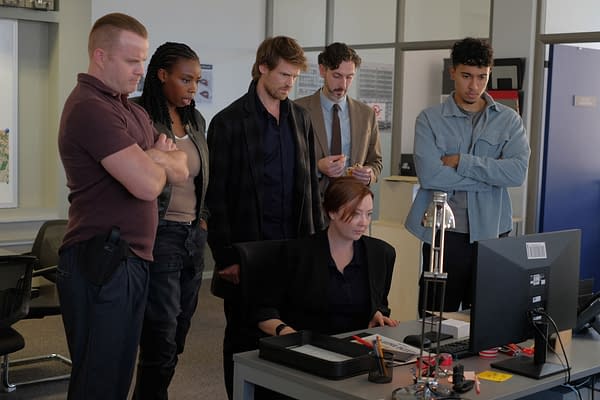
Wainwright: As I said, I was not familiar with the novels, and I was a little intimidated by all those performances that had come before, but I didn't watch them. I got a sense of them just from images. I looked at some snippets of Michael Gambon's one and I thought, "I see what they're doing here," but I'm very fickle and easily influenced, so I wanted to stay away from them. I'm glad I did, because what we ended up doing was not so noir and so not how it's been done before. I think we had a more interesting time, because there was space for Maigret to find levity, humor, lose his rag, lose control of his team, and lose suspects.
It's very scrappy, he's working it out, and he is relying heavily on Le Crim and their expertise and using them to stress test his slightly left-field ideas. That's where we managed to differ from the previous iterations, but it was important still to keep the essence of Maigret and hold on to that weight without it ever "feeling heavy." That's a phrase that we landed on. John [Simenon], one of Georges Simenon's sons, was there on set some days, and he used to talk about "le poids," which is the weight and heaviness. I think he was worried that we wouldn't be able to deliver that with a young Maigret, but hopefully, we trod the line, and those moments of humor and levity can sit beside the scrutiny and empathy for the victims and the perpetrators in these crimes. Too many words, but we got there in the end.
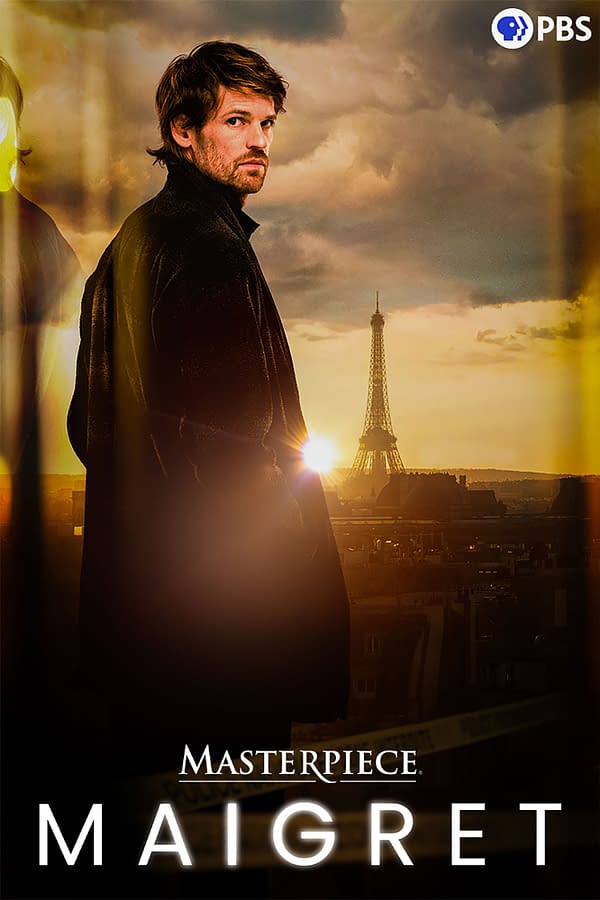
Maigret, which also stars Stefanie Martini, Natalie Armin, Reda Elazouar, Blake Harrison, Kerrie Hayes, and Rob Kazinsky, airs Sundays through November 9th on MASTERPIECE Mystery! on PBS and is available to stream via PBS and PBS MASTERPIECE on Prime Video.








